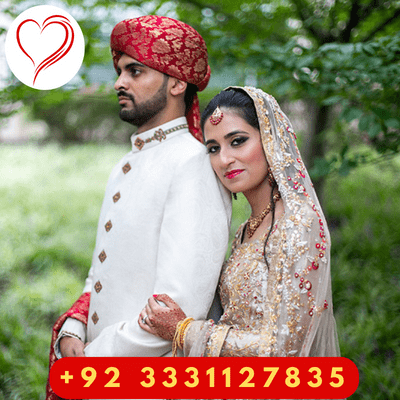Marriage/ Nikah Laws in Islam| Nikah Process In Pakistan|Online Nikah In Islam
Understanding Marriage/Nikah
Islamic marriage, known as “Nikah,” is a sacred and significant institution in the Islamic faith. It represents not only a social and legal union but also a profound religious commitment between a man and a woman. Nikah is characterized by a contractual agreement entered into by both parties, marked by their voluntary consent. One of its essential elements is the concept of “Mehr”, which underscores the financial and social aspects of this commitment. In this exploration, we delve into the significance of Nikah in Islam, its rituals, and its broader cultural and religious implications, shedding light on a vital aspect of Islamic life and practice.
Nikah: Significance and Religious Importance
Nikah/Marriage holds immense significance in the lives of Muslims, as it is considered one of the most virtuous acts in Islam. The Quran and Hadith (the sayings and actions of the Prophet Muhammad) emphasize the importance of Marriage/Nikah to complete one’s faith and fulfill one of the primary purposes of life in Islam.Marriage/Nikah in Islam is a source of spiritual and emotional fulfillment. It provides a lawful avenue for the expression of love and companionship and the procreation of children within a family structure. The Prophet Muhammad (peace be upon him) set a profound example by valuing and cherishing his wives, emphasizing kindness and compassion within the marital relationship.
Marriage in Islam holds profound significance and religious importance as it is considered a social contract and a sacred covenant before God. Here are several key aspects that illustrate its significance:
Nikah: Fulfillment of Religious Duty
Marriage is seen as a religious duty in Islam. The Prophet Muhammad is reported to have said, “O young people! Whoever is able to marry, should marry…” (Sahih al-Bukhari). This hadith emphasizes that marriage is a means to fulfill one’s religious obligations and to live a life in accordance with Islamic teachings.
Preservation of Lineage and Family:
One of the primary purposes of marriage in Islam is to preserve one’s lineage and create a stable family structure. This is important for raising children in an Islamic environment and maintaining a sense of continuity and identity within the Muslim community.
Avoidance of Sin:
Marriage is encouraged as a means to avoid sinful behavior, particularly illicit sexual relations. Islam promotes modesty and chastity, and marriage provides a lawful outlet for the fulfillment of sexual desires, thus preventing adultery and fornication

Spiritual Growth:
Marriage is considered a source of spiritual growth and purification in Islam. Spouses are expected to support each other in their faith and worship, and the marital relationship is viewed as a means to attain closeness to God through mutual respect and care.
Social and Economic Security:
Marriage provides social and economic security for both partners. It ensures that each spouse has a support system in times of need, and the concept of Mahr (dower) ensures that the wife has financial protection in the event of divorce or the husband’s death.
Unity and Love:
The Quran describes marriage as a relationship characterized by love, mercy, and tranquility (Quran 30:21). Spouses are encouraged to treat each other with kindness and compassion, fostering an atmosphere of love and harmony within the family.
Prophet’s Example:
The life of the Prophet Muhammad serves as a model for Islamic marriage. His marriage to Khadijah, his loyalty to his wives, and his teachings on marriage are all considered exemplary by Muslims.
Community Building:
Strong families are seen as the building blocks of a just and righteous society in Islam. By establishing stable and loving families, Muslims contribute to the broader community’s well-being and adherence to Islamic values.
Marriage/Nikah as a Social Contract:
Marriage/Nikah in Islam serves multiple roles. It is also a social contract providing a structured and lawful framework for family building. In Islam, family is considered the cornerstone of society, and a stable family unit is believed to contribute to a harmonious and just society.


Safeguarding Well-Being in Islamic Marriage/Nikah:
Furthermore, Islamic Marriage/Nikah has been designed to safeguard spouses’ physical, emotional, and spiritual well-being. It provides a means for fulfilling sexual desires in a lawful and controlled manner. It also offers companionship and emotional support, as spouses are expected to be each other’s partners and confidants.
Islamic Views on Marriage/Nikah
Marriage/Nikah is not merely a contractual agreement but a spiritual covenant in Islam. It is based on mutual consent, trust, and the shared commitment to obeying the commandments of Allah (God). Islamic Marriage/Nikah is free from any compulsion or coercion, ensuring that both the bride and groom enter into the union willingly and with a full understanding of their responsibilities.
Muslims are encouraged to seek spouses who share their faith and values, as compatibility in matters of religion is believed to enhance marital harmony. The Quran mentions the importance of marrying “believers” and sharing one’s faith.
The Nikah Ceremony: A Sacred Union
Nikah Ceremony Traditions
The Nikah ceremony, a core component of Islamic Marriage/Nikah, is a solemn and joyous occasion that brings two individuals together in the presence of Allah and witnesses. It is a celebration of love, commitment, and the beginning of a new chapter in the bride and groom’s lives.
Khutba e Nikah
The Nikah ceremony typically begins with a Khutbah (sermon) delivered by an Islamic scholar or religious leader. The Khutbah reminds the couple and the attendees of Marriage/Nikah’s significance in Islam and its responsibilities.
Ijab o Qabool
The proposal (Ijab) and acceptance (Qubool) occur. The groom expresses his desire to marry the bride, and the bride accepts this proposal willingly. This exchange is often done in the presence of witnesses who attest to the agreement.
Nikahnama
A Nikahnama is a marriage contract or agreement in Islamic tradition. It is a legal and religious document that outlines the terms and conditions of a marriage according to Islamic law, also known as Shariah. The Nikahnama is a binding contract between the husband and wife and specifies their rights and responsibilities within the marriage.
The Importance of Nikah in Weddings
In Islam, the Nikah ceremony is considered the heart of the wedding. It is a religious obligation that validates the Marriage and makes it lawful in the eyes of Allah. Without the Nikah, the Marriage would not be recognized as legitimate from a religious standpoint.
The Nikah ceremony serves as a public declaration of the couple’s commitment to one another and to follow the path of Islam together. It is a moment of spiritual significance, and the prayers and supplications offered during the ceremony seek Allah’s blessings and guidance for the couple’s future life together.
Steps in the Nikah Ceremony
- Proposal (Ijab):
The groom or his representative proposes to the bride in front of witnesses, expressing his intention to marry her.
- Acceptance (Qubool):
The bride accepts the proposal, indicating her consent to the Marriage/Nikah.
- Mahr In Islam:
The Mahr, in Islam, is agreed upon by the bride and groom and is usually specified in the Marriage/Nikah contract (Nikahnama).
- Witnesses:
Two adult Muslim sane witnesses must be present to testify to the agreement and consent of both parties.
- Prayers and Supplications:
The officiant or religious leader recites prayers and supplications, seeking Allah’s blessings for the couple.
- Marriage/Nikah Contract (Nikahnama):
The bride, groom, and witnesses sign the Marriage/Nikah contract. It outlines the terms and conditions of the Marriage/Nikah, including the Mahr amount.
The Nikah ceremony varies in customs and traditions across different cultures and regions in the Muslim world. However, the core elements remain consistent, such as the proposal, acceptance, witnesses, and prayers.
Muslim Marriage/Nikah Laws in Pakistan
Overview of Marriage/Nikah Laws in Pakistan
Pakistan, being a predominantly Muslim country, has specific laws governing Islamic Marriage/Nikahs. These laws are in accordance with Islamic principles and provide a legal framework for conducting and registering Marriage/Nikahs within the country.
The primary legal document that governs Muslim Marriage/Nikahs in Pakistan is the Muslim Family Laws Ordinance 1961. This ordinance provides a comprehensive legal framework for various aspects of family law, including Marriage/Nikah, divorce, and maintenance.

1. Age:
The legal age for Marriage/Nikah is 18 for males and 16 for females. Any Marriage/Nikah below these ages is not valid.
2. Consent:
Both parties must provide their free and willing consent to the Marriage/Nikah. Forced or coerced Marriage/Nikahs are not legally recognized.
3. Registration:
Marriage/Nikahs must be registered with the relevant authorities to be legally recognized. The Nikahnama (Marriage/Nikah contract) is essential to this registration process.
4. Witnesses:
The presence of two adult Muslim witnesses is mandatory during the Nikah ceremony. They are required to sign the Nikahnama to validate the Marriage/Nikah.
5. Mahr :
The amount of Mahr in Islam must be agreed upon by the bride and groom and specified in the Nikahnama.
6. Prohibited Degrees:
Marriage/Nikahs between individuals within prohibited degrees of relationship are not allowed under Islamic law.
7. Polygamy:
The husband must declare if he has other wives during Marriage/Nikah. Polygamy is allowed in Islam but is subject to specific conditions and restrictions
Registration of Islamic Marriage/Nikahs
The registration of Islamic Marriage/Nikahs is a crucial legal requirement in Pakistan. It provides legal recognition to the Marriage/Nikah and ensures that the rights of both spouses are protected under the law.
The Nikahnama, the Marriage/Nikah contract, plays a pivotal role in the registration process. It contains essential details about the Marriage/Nikah, including the names of the bride and groom, witnesses, Mahr amount, and other relevant information. Once the Nikahnama is signed and registered, the Marriage/Nikah is officially recognized by the state.
Muslim Marriage/Nikah laws in Pakistan are based on Islamic principles and are designed to protect the rights and interests of individuals entering into Marriage/Nikah. Legal requirements, including age, consent, registration, and the presence of witnesses, ensure that Islamic Marriage/Nikahs are conducted in accordance with the law.
The Nadra Marriage certificate:
The Nadra Marriage Certificate is an official government document issued by the National Database and Registration Authority (Nadra) in Pakistan. This certificate serves as legal proof of a registered marriage or Nikah in Pakistan. It is an important document that provides validation and recognition of the marriage under Pakistani law.
Here are some key points about the Nadra Marriage Certificate:
1. Legal Recognition:
The Nadra Marriage Certificate is evidence of a legally recognized marriage in Pakistan. It confirms that the marriage has been registered with the government and complies with the legal requirements of the country.
2. Information Included:
The certificate typically includes essential information about the married couple, such as their names, ages, addresses, and CNIC (Computerized National Identity Card) numbers. It may also include details about the date and place of the marriage, as well as the names of witnesses.
3. Importance:
Having a Nadra Marriage Certificate is crucial for various legal and administrative purposes in Pakistan. It is often required for visa applications, property transactions, inheritance matters, and other legal proceedings.
4. Proof of Marriage:
In case of any disputes or legal issues related to the marriage, the Nadra Marriage Certificate can serve as concrete evidence of the marriage’s existence and validity.
5. Registration Process:
To obtain a Nadra Marriage Certificate, couples typically need to follow a registration process, which may involve submitting the necessary documents and paying a fee. The process may vary depending on the region and local regulations.
6. Official Document:
The certificate is an official government document with legal authority, and it is issued by Nadra, who is responsible for maintaining a national database of citizens in Pakistan.
The Nadra Marriage Certificate is a vital document that provides legal recognition to a registered marriage in Pakistan. It helps protect the rights and interests of the married couple and is often required for various legal and administrative purposes within the country.
